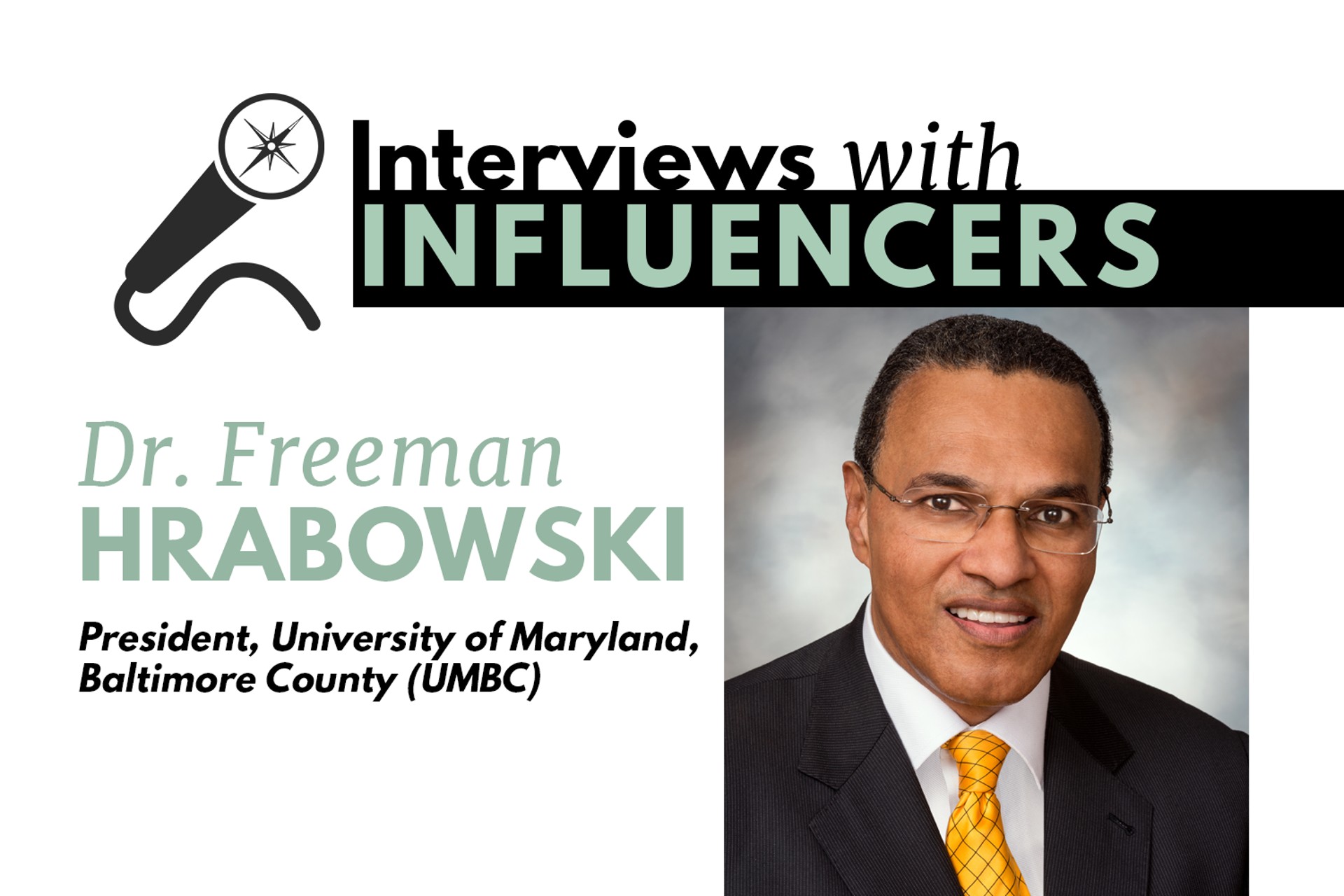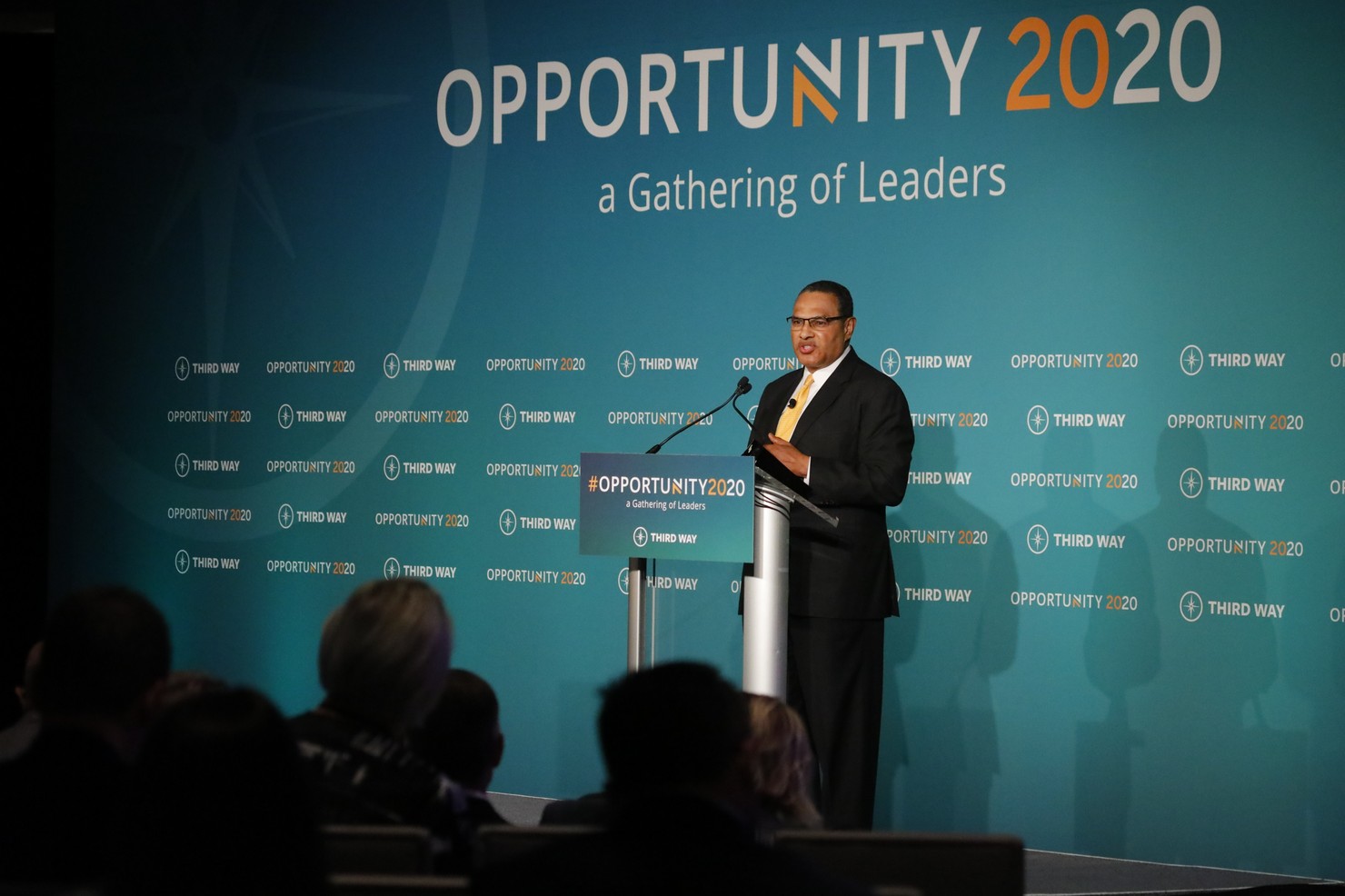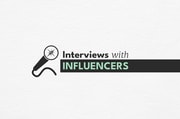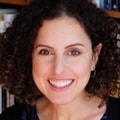Interview Published August 13, 2018 · 18 minute read
Interviews with Influencers: Dr. Freeman Hrabowski
Nicole Siegel

Long before the University of Maryland, Baltimore County (UMBC) rose to athletic stardom in their historic victory over the top-seeded University of Virginia in the NCAA basketball tournament earlier this year, we were fans of Dr. Freeman Hrabowski and his leadership as President of UMBC. As a child-leader in the Civil Rights Movement to one of the most “innovative” leaders of higher education in modern times, it’s safe to say his bio is filled with impressive accolades, honors, and awards – the likes of which would be too lengthy to include here. Interviewing him was a true honor, and it’s easy to see how his attitude and drive have translated to incredible success both on and off the basketball court at UMBC.
Q: At the age of 12, you convinced your parents to let you participate in the Children’s Crusade March for Civil Rights in your hometown of Birmingham, Alabama. This resulted in your arrest, where you spent five days in jail. Upon your release, you and other children listened to these powerful words of Dr. Martin Luther King Jr., which you’ve described as life altering: “What you do this day will have an impact on generations as yet unborn.” How do these words impact your approach to being a university president?
A: When I think about my work, it’s not so much as the work of a president, rather as someone who is passionate about education. My most recent book reflects on growing up in Birmingham and how those experiences shaped my thinking about education. I was (and still am) a nerdy kid with a love for mathematics. I know that every child really can be good at math and science and am disappointed in our society for pushing children out of those disciplines, for letting them believe they can’t be good at those subjects, and suggesting if they are good at math and science then they can’t possibly be good in the arts. We teach American kids you are either one or the other.
What I’ve learned is that building community among people, whether it’s children or faculty or people in a political group so that they come to appreciate each other’s strengths and challenges and learn how to support each other is critical. Whether it’s in math or science, or it’s in preparing for some unbelievably difficult project, or even athletics.
High expectations are also important, for all disciplines. It takes people who are experts in the field to pull others in. We should always be thinking about what’s working, and how we can make improvements. Through all of that is the notion that things can be better than how they’ve been and of all the things I can tell you, it’s that my experience during the civil rights movement convinced me for the very first time in my life, I didn’t always have to go through the back door. My parents were incredibly special people, and wanted me to feel special. As a child, all of my school books were old and used, but they bought me new books to have at home just so I knew I was deserving of them. It was during this time that I realized things can be different tomorrow from today, and decided we can empower ourselves to make the difference. There’s the point of it all.
Building community. High expectations. Innovation. Those are the pillars of my approach to leading UMBC.
Q: Many institutions of higher education in our country do a poor job serving low-income and underrepresented students. They hesitate to increase their share of Pell students because they fear it may negatively impact enrollment, retention and completion. And yet UMBC manages to do it quite well, where Pell students graduate at nearly the same rate as non-Pell students. What advice would you give to institutional leaders for how to better serve traditionally underrepresented students?
A: It is true that half the students who start college don’t graduate. That’s abysmal, but it’s also important we look beyond the numbers. What do students know? And perhaps more important than that, have they really examined their own values? Have they learned how to work with people different from themselves? Not only having the degree, but also having the skills, the mindset, and the ability to work with anyone – that is the truest measure of success.
Our expectations of graduation only are frankly not high enough. UMBC is a campus that talks about inclusive excellence. We work really hard to get 25%-30% of students who are Pell Grant eligible. We are also deeply connected to Pre-K-12. We have many programs that are working to help children read well and to think critically because everything flows from that. If you teach a child to read and think, and teach her she can do anything, you can teach her to solve a math problem. With that said, we’ve been able to acquire a number of grants that have helped us create a pipeline of children from the poorest of neighborhoods to matriculate to UMBC, or to other high-quality institutions nearby – both two- and four-year institutions alike.
"Building community. High expectations. Innovation. Those are the pillars of my approach to leading @UMBC."
—Dr. Freeman Hrabowski
We have also worked very hard to disaggregate the data. It is so critical to use analytics to evaluate your performance as an institution and to ensure you’re serving students to the best of your ability. If there are women in chemistry, if you are interested in the overall performance of low-income students, or students from inner city or rural schools, you must dig into the data to see how those specific groups of students are performing. Using analytics to look at the trends, providing opportunities for students to voice their concerns and opinions, and perhaps most important feeling comfortable to take a hard look in the mirror as a university president are all key tactics for success.
Too often in higher education we say it’s the students’ fault. Well if 70% of my students are not succeeding, what is my role in that? What is it I didn’t do? And if I admit a student, am I with some confidence that they can really succeed? Or did I admit them because I need the numbers for the budget? It’s a very tough question because budgets are driven in the public sector and the private sector by the enrollment. If you lose enrollment, you lose your budget, and then you’re in trouble. And often we are so concerned about the numbers that we haven’t looked to say, “What is the relationship between this person’s academic background and preparation for the work and the level of resources we have to help them?”
If I admit a student, does that student have at least a reasonable chance (65%+) of succeeding? Or is it the case that everyone who has come from that background (with preparation that low) almost never succeeds at our university? And I would argue that having gone around the country, most institutions (two- and four-year) don’t even necessarily know the answer to the question. It’s not because they don’t care, rather it’s just because they haven’t come to appreciate how valuable the data is.
I’d also encourage institutions of higher ed to really look at what the big barriers to graduation are. I think more than income-level, and more than financial aid, developmental math is a dividing line.
"Too often in higher education we say it’s the students’ fault. Well if 70% of my students are not succeeding, what is my role in that? What is it I didn’t do?" Dr. Freeman Hrabowski tells @ThirdWayEDU.
A large proportion of American students begin their postsecondary education in developmental math courses. The absolutely stunning statistic is that under 20% of students who start in developmental math ever complete. So institutions that are working to help students from low-income backgrounds succeed need to understand they must do much more with the K-12 school system in that area in the preparation of teachers and families to work with children in enhancing math and reading skill sets. Because once a child can read well, you can never take it away. That’s the idea.
Q: You’ve been quoted as saying “success is never final” – so what’s next for you and UMBC?
A: You know, I am the quintessential nerd. Our success with basketball has been so funny. Because everyone has asked me, “Do you get it now? Sports really do have a role to play!” I have always been the academic president. My campus is a very nerdy place. You see a chess player, you bow to him. We do the kind of theater that depresses you. We do Waiting for Godot. My students really enjoy the depressing stuff. We are not the jolly kind. It’s a dark place, and I love them for it. Right now for me personally I am working to learn different things. Everybody knows I’m studying French. [I guess not everybody, because I didn’t know. But after a few minutes listening to beautifully spoken French, I too soon learned of Dr. Hrabowski’s newest skill.] All day long students are speaking with me in French. My interest piqued when I told my students I was planning to study French, and they told me I was too old. I told them “bring it on!”
Now why do I tell you that? It’s my job to help the whole UMBC campus think about the fact that you never stop learning, and that the university should be a place where we are all learning new things. We are currently building an interdisciplinary life sciences building that will help us to connect disciplines in ways we never have before, and to help us solve problems in new and creative ways – everything from cancer research to exploring issues around climate.
So for us, the next step is using the basketball success and applying it to academic growth. We have been responsible for transforming scores of courses to infuse entrepreneurship. Not just in the traditional areas of economics and engineering, but also in the arts. My students in the arts are often saying “before, I knew how to do my craft but I didn’t know to run a business.” So the idea of a university creating this cadre of business leaders in the arts to become social entrepreneurs is quite impressive. We have more than 100 companies on campus, where 30% of the CEO’s are women, and 25% are minorities – that’s unheard of! And it’s the result of being truly deliberate about expanding opportunities to all students on campus.
Prioritizing academics first, believing in our students, setting high expectations and helping people rise to the occasion. That will be the symbol of grit for our country. True grit. —@UMBC President Dr. Freeman Hrabowski
The future is about shedding more light on who we are in the way that the basketball win did. I’m writing a new book on culture change, and I’d almost finished the book when March Madness happened. It changed everything. We were written up in The New York Times several times, and even in a variety of French news outlets. Wow I thought, “this is what athletes can do!” It’s critical we make sure our success is balanced – that our students can read and get good jobs. I tell you that because when something happens at a university – that’s either really good or really bad – who you are and what you do makes all the difference. It would have been very easy for us to become overwhelmed by the basketball success and invested much more money into athletics. But we are an institution that’s so focused on academics, and doing so would have put our values into question.
We are delighted that we had this wonderful moment of success. So what’s next for us is not losing sight of UMBC’s values by prioritizing academics first, believing in our students, setting high expectations and helping people rise to the occasion. That will be the symbol of grit for our country. True grit.
Q: If you had a magic wand, what’s one change you’d make in federal higher education policy?
A: I would want the criteria for Pell Grants to be changed to provide much more support to both middle- and low-income people. If you’re at the bottom economically, we can usually help you financially. Low-income individuals typically aren’t accustomed to getting things in by the deadlines, so for FAFSA application deadlines of March 1st, we advertise a deadline of Valentine’s Day, February 14th. This way we can ensure the appropriate materials have been submitted, because once the train has left the station, students and their families can no longer get on it. And there are so many poor families that don’t meet the deadlines, or don’t even apply to college until it’s too late, and that’s a real barrier. We need to address those challenges. So often we only focus on low-income individuals, and while I do agree we’ve got to do so much more for that group, we also need to be thoughtful about helping the average family – which represents around 40% of the country.
Q: Who are your influencers in education, and why?
A: Growing up, my influencers were without a doubt my parents who worked five jobs. We always had people in the house learning. If you came to my house to play, people knew my mom was going to give us math problems and books to read. Everything growing up was about education. Whether we were at Sunday school or at home, we were always surrounded by books. My folks were constantly working to make me “twice as good.” The idea was that the world would not be fair and if you were up against someone who was white, you probably wouldn’t get the job. My parents also taught me not to be bitter, but to just work harder.
Today my influencers are my students. They are amazing. I have kids who come from families where they are challenged by divorce, or someone in their family has cancer, or in some cases they know someone has recently been killed, or they themselves are struggling with depression. And you can see how students supporting students and facilitating a community can not only keep individuals from dropping out of college, but it can save lives. Witnessing these students transform makes all the difference in the world.
Let me give you two examples: Dr. Jerome Adams, the Surgeon General of the United States is one of my former students. He came to UMBC at the age of 17 from Mechanicsville, Maryland. He always says he is one of my failures because we encouraged him to pursue the PhD/MD program and he decided to pursue his medical degree only. Dr. Adams later went on to get his master of public health from UC Berkeley. He went on to serve as the Health Commissioner in Indiana where he fought to switch out the needles in response to the state’s unprecedented HIV outbreak. He was met with a lot of pushback, but knew he was doing the right thing, and that the evidence would show. And he was right. Indiana saw a reduction in the spreading of HIV and AIDS and a decrease in the number of people going to rehab for drug addiction. Later upon being nominated as Surgeon General when people would ask about his background, he said: “When it comes to life and death, we get beyond politics.”
The current president of Clemson University, Dr. James Clements was also one of my students. He came to UMBC as a first-generation student from a working class family. He tells people I was his college president and it’s so meaningful for the people of South Carolina to see the prominent president of Clemson claim a black man as his own college president.
The future is about shedding more light on who we are in the way that the basketball win did. —@UMBC's Dr. Freeman Hrabowski
So, what’s the message? It’s seeing these low-income, working and middle class students who are literally changing the world and the message for us at UMBC is this: you don’t have to be rich to be the very best. Walking around campus, it’s my job to look at these young people who are unsure of themselves, and tell them they can be anything! Just earlier this summer, I was with middle school girls in a “coding and yoga” program. As they work to strengthen their stamina from yoga while learning to code, they are being empowered to assert themselves as powerful contributors in a professional setting that’s traditionally been reserved for men. That totally inspires me for what’s to come. I’ve really got the best job in the world.
Q: UMBC’s historic win over the University of Virginia in the NCAA basketball tournament earlier this year put UMBC on the map in a different way for folks across the country. If you could write the secret to UMBC’s success (both on and off the court) on a bumper sticker, what would it say?
A: It’s the essence of what I said in this Atlantic piece. Whether it’s on the court, or in the classroom, it’s grit that makes all the difference. Straight up. Grit makes the difference. We make the mistake in America of telling some children they are smart – well what are we saying to the other 90%? They are just ordinary? When the fact is, it’s about attitude and resilience. Nothing can take the place of hard work. If I had my wish, it would be to have every child have a sense of self, to know that you don’t have to let people define who you are. The basketball team did now allow the country to define them as losers. They went into the NCAA tournament with the idea that they were going to give it everything they had – and that’s inspiring. I rushed to California because I wanted to be there to support them regardless of the outcome. Although to be candid, I thought I knew what the outcome would be. If you’ve not seen something happen before, it’s really hard to believe it will. And as a nerd and a mathematician, I believe in probability. What I knew for sure was this: I knew that when the UMBC men’s basketball team walked off the court, people would be saying, “that’s one hell of a team,” regardless of how they won or lost. A team that knows how to work together and never give up, and that’s exactly what they did. I am still in a daze!
@UMBC President Dr. Freeman Hrabowski: Whether it’s on the court, or in the classroom, it’s grit that makes all the difference. Straight up. Grit makes the difference.
I teach seminars at Harvard to senior leaders and there were several individuals in the course from the University of Virginia and I was sure to tell them how much respect we have for UVA. It’s truly the height of public higher education in this country. But for us, the idea was this: you can be the underdog from an institution only 50 years old, and sometimes the sun will shine on you. I get goosebumps thinking about my kids out there playing against best in class and never, never, never giving up – it doesn’t get any better than that. On Dan Rather’s Facebook page, he said “When people tell you you can’t, you tell them UMBC.”
We are working to harness the momentum from the basketball win to show why we are so excited about academics. And if you’re wondering about those basketball players, Jairus Lyles just signed with the Utah Jazz and he’s continuing to work on his Masters in Instructional Systems Design online. We text regularly and he tells me, “I still have so much to do, so far to grow.” He understands success is never final. Achieving success on and off the court? If you have grit, then it seems anything is possible.
Q: And while you claim to still know more about math than you do about basketball, I’d love to know if you were heading to the court for a big game, what would your walkout song be?
A: (This question definitely got the biggest laugh during our time together). You got me! You got me! You absolutely got me! I will have to tell you that my grandson is staying with us right now, he’s six and sometimes he’ll jump in the bed with us very early in the morning. He’ll ask Alexa to play “I Smile” by Kirk Franklin – which is my favorite song ever. So I would walk out onto the basketball court singing “I Smile” because it’s about whether there is a cloudy day or night you’ve got to smile through it. My students on campus see me in the mornings and I’m always perky and bubbly and they ask me, “Why are you so bubbly, Doc?” And I tell them there is a secret to my attitude. What they don’t know is that I’m not actually a morning person, but it’s all about attitude. I refuse to allow a feeling of fatigue to keep me from being my best self. The top selling t-shirt at UMBC says “Be Your Best Self.” When you walk into a room smiling, it means you believe in yourself, and you believe in your team. What could be better?!


